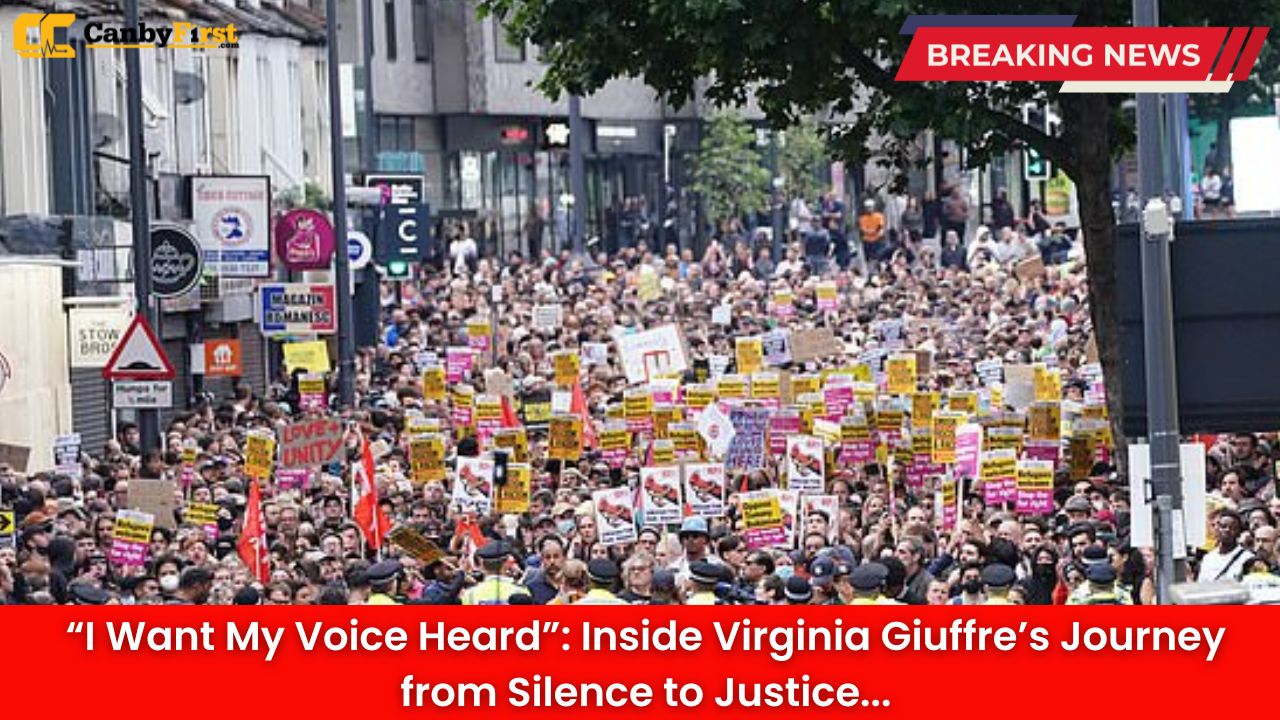It has been over a decade since Virginia Giuffre’s name first came to public attention in connection with the late financier Jeffrey Epstein. What began as a whisper about a secret web of power and exploitation has today become one of the most publicised survivor stories of modern times. Now speaking more openly and on her own terms, Giuffre’s story continues to challenge systems of privilege, accountability, and justice in ways that resonate far beyond any courtroom.
For much of her teenage years, Giuffre (née Roberts) lived in the shadows of Epstein’s sprawling network. She has since documented what it meant to be manipulated, coerced, and trafficked among some of the world’s most influential men. Today, she says she is no longer “the girl in the photographs,” but a woman who wants her voice to help protect others.
Early Years and the Path to Epstein
Giuffre’s early life in Palm Beach, Florida, was marked by instability. She ran away at 14, seeking escape from an abusive household and surviving on her own. As a teenage runaway, she found herself working at Donald Trump’s Mar-a-Lago resort, where she met Ghislaine Maxwell — Epstein’s longtime associate.
Also Read
Giuffre has recounted how Maxwell initially approached her under the guise of offering a legitimate opportunity. That supposed opportunity led her instead into Epstein’s orbit, where she says she was recruited, groomed, and sexually abused by powerful men beginning when she was just 17.
“I was a kid who wanted to be rescued,” she has said in interviews. “Instead, I was pulled deeper into a world where people used me as if I were disposable.”
Breaking the Silence
Giuffre’s battle to tell her story publicly was met with intense scrutiny, denial, and years of legal entanglement. She first came forward in court filings nearly two decades ago, when few were willing to believe her claims against an elite financier with friends in royal and political circles.
For years, her testimony remained buried in sealed documents. But after Epstein’s 2019 arrest and later his death in a New York jail cell, the public began demanding answers. Overnight, Giuffre’s name was thrust into headlines worldwide — no longer as part of whispered allegations but as the focal point of a reckoning with systemic abuse of power.
“I spent years being told I didn’t matter,” Giuffre said in a recent public statement. “Now, I believe every survivor matters. We all have the right to be heard.”
Facing Powerful Figures
Giuffre’s story is not only about Epstein; it’s also about those who allegedly enabled him. Her high-profile civil lawsuit against Britain’s Prince Andrew captured global attention in early 2022. Although the case was settled out of court, the event marked a turning point — both for Giuffre and for public awareness of the patterns of exploitation that connected high society and human trafficking.
While the Duke of York denied her allegations, the settlement stood as silent acknowledgment of the gravity of the claims. For Giuffre, it meant more than legal closure — it meant reclaiming her narrative.
“I never wanted fame,” she said. “I wanted accountability. I wanted the world to see what happens when money and power are used to crush someone’s humanity.”
The Fight for Justice and Reform
Today, Giuffre dedicates her time to advocacy through her foundation, which focuses on supporting survivors of sexual exploitation and human trafficking. Her activism combines personal storytelling with global awareness campaigns, pushing for reforms in law enforcement training, survivor protection, and education on grooming and coercion.
She highlights the importance of recognizing warning signs and holding perpetrators accountable regardless of their influence. “People looked the other way for years because it was uncomfortable,” she explained. “When we start believing survivors instead of silencing them, that’s when real change begins.”
Giuffre’s efforts align with a broader wave of survivor-led advocacy that has brought similar cases of abuse to light. The global “MeToo” movement and its offshoots have given momentum to her message: that silence helps abusers, and testimony empowers survivors.
Reflections on Epstein’s Legacy
Even years after Epstein’s death, his name still symbolizes wealth corrupted by secrecy and unchecked privilege. But to Giuffre, his death did not bring closure. “He took the easy way out,” she remarked. “He didn’t have to face what he did to so many of us.”
What remains, she says, is a fight not against one man but against an entire culture that allowed his actions to flourish unchecked. Through ongoing civil cases, released court documents, and survivor accounts, the public continues to uncover just how deep and wide those patterns ran.
Looking Forward
Now in her early forties, Giuffre lives a quieter life with her husband and children in Australia. Despite the years of global attention, she maintains a sense of optimism and purpose. Her journey is far from over — her voice is now part of education systems, anti-trafficking programs, and survivor networks worldwide.
“I refuse to be defined by what happened to me,” she says. “Instead, I’ll be defined by what I do with it.”
As more survivors come forward, Giuffre’s story serves as both a warning and an inspiration — a portrait of resilience built on truth told at enormous personal cost. Her message continues to echo through courtrooms, classrooms, and communities everywhere: justice is only possible when silence is broken.
FAQs
Who is Virginia Giuffre?
Virginia Giuffre (formerly Virginia Roberts) is a survivor of sexual abuse and trafficking associated with Jeffrey Epstein. She became one of the key figures in exposing Epstein’s crimes and those within his circle.
How was she connected to Jeffrey Epstein?
At 17, Giuffre was recruited by Ghislaine Maxwell while working at Mar-a-Lago in Florida. She later claimed that Epstein sexually abused her and trafficked her to powerful men.
Did she take legal action?
Yes. Giuffre filed multiple civil lawsuits, including one against Prince Andrew, which was settled out of court in 2022.
What is she doing now?
Giuffre now leads advocacy initiatives focused on anti-trafficking efforts, survivor support, and awareness campaigns worldwide.
Why is her story significant today?
Her story symbolizes the fight against systemic abuse of power and the importance of believing survivors, holding elites accountable, and reforming institutional responses to sexual exploitation.












